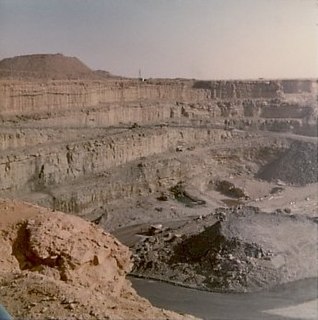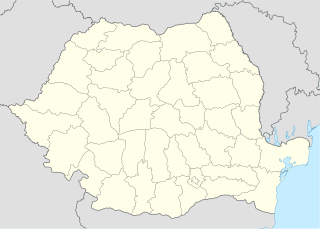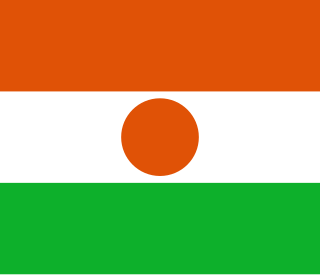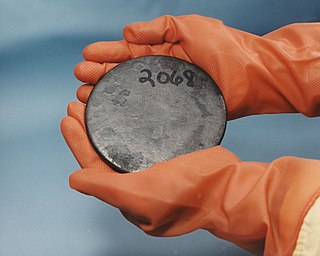
The economy of Niger is based largely upon internal markets, subsistence agriculture, and the export of raw commodities: foodstuffs to neighbors and raw minerals to world markets. Niger, a landlocked West African nation that straddles the Sahel, has consistently been ranked on the bottom of the Human development index, with a relatively low GDP and per capital income. Economic activity centres on subsistence agriculture, animal husbandry, re-export trade, and export of uranium. The 50% devaluation of the West African CFA franc in January 1994 boosted exports of livestock, cowpeas, onions, and the products of Niger's small cotton industry. Exports of cattle to neighboring Nigeria, as well as Groundnuts and their oil remain the primary non-mineral exports. The government relies on bilateral and multilateral aid – which was suspended briefly following coups d'état in 1996 and 1999 – for operating expenses and public investment. Short-term prospects depend on continued World Bank and IMF debt relief and extended aid. The post 1999 government has broadly adhered to privatisation and market deregulation plans instituted by these funders.

Yellowcake is a type of uranium concentrate powder obtained from leach solutions, in an intermediate step in the processing of uranium ores. It is a step in the processing of uranium after it has been mined but before fuel fabrication or uranium enrichment. Yellowcake concentrates are prepared by various extraction and refining methods, depending on the types of ores. Typically, yellowcakes are obtained through the milling and chemical processing of uranium ore forming a coarse powder that has a pungent odor, is insoluble in water, and contains about 80% uranium oxide, which melts at approximately 2880 °C.

Arlit is an industrial town and capital of the Arlit Department of the Agadez Region of northern-central Niger, built between the Sahara Desert and the eastern edge of the Aïr Mountains. It is 200 km south by road from the border with Algeria. As of 2011, the commune had a total population of 112,432 people.
Orano Cycle, formerly COGEMA and Areva NC, is a French nuclear company. It is the main subsidiary of Orano S.A. The company was created in 1976 from the production division of the French government's CEA. It is an industrial group active in all stages of the uranium fuel cycle, including uranium mining, conversion, enrichment, spent fuel reprocessing, and recycling. In 2001, COGEMA was merged with Framatome and CEA Industrie to form the larger group Areva; the subsidiary's name was changed to Areva NC in March 2006. In 2018, it changed its name to Orano Cycle to reflect the restructuring of Areva.
The China Nuclear International Uranium Corporation (中国国核海外铀资源开发公司) is a Chinese Government owned corporation involved in prospecting, and eventually mining, overseas sources of uranium.

The mineral mining industry is a crucial piece of the Economy of Niger. Exports of minerals consistently account for 40% of exports.

The Băița mine is a large open pit mine in the northwest of Romania in Bihor County, 123 km southeast of Oradea and 737 km north of the capital, Bucharest. Băița represents the largest uranium reserve in Romania having estimated reserves of 90 million tonnes of ore grading 0.5% uranium metal.
The country mining the largest amount of uranium is Kazakhstan, which in 2015 produced 39% of the world's mining output. Canada was the next largest producer with a 22% share, followed by Australia with 9%. There are uranium mines on every inhabited continent.

SOMAIR is a national mining company of Niger in the mining area of its northern zone. Established in 1968, it started uranium mining at the Arlit deposit in 1971, mining 0.30 - 0.35% ore down to depth of 60 metres (200 ft) depth. By 1981, the company was producing 2100 tU/yr and by 2006 it was producing 1565 tU at the Tamou deposit. The production peaked to 3065 tU in 2012. The resources, according to the Red Book, are assessed at 23,170 tU, as of 2010, at 42,200 tU of 0.25%U grade recoverable conventionally, and 5500 tU of 0.07%U grade from heap leaching. SOMAIR is one of two national mining companies in Niger, the other being COMINAK in the nearby Akokan.
COMINAK is a national uranium mining company of Niger.

Akokan is a mining town in the Arlit Department of the Agadez Region of northern-central Niger. It is located about 5 kilometres (3.1 mi) southwest of Arlit in the Sahara Desert, and roughly 250 kilometres (160 mi) north of Agadez. It is considered to be Niger's "second uranium town". SOMAIR and COMINAK, run by Areva and the Nigerien state, operate uranium mines in the vicinity of the towns of Akokan and Arlit. In the maps of the area, Akokan is classified under "Mine - Agadez-Niger". The Tuareg and Toubou people are local to the area.

The Arlit mine is a large mine located near Arlit, in the northern part of Niger in Agadez Region. Arlit represents one of the largest uranium reserves in Niger having estimated reserves of 47.5 million tonnes of ore grading 0.014% uranium.
The Imouraren mine is a large mine located in the northern part of Niger in Agadez Region. Imouraren represents one of the largest uranium reserves in Niger having estimated reserves of 109.1 million tonnes of ore grading 0.06% uranium.
The Adrar Emoles mine is a large mine located in the northern part of Niger in Agadez Region. Adrar Emoles represents one of the largest uranium reserves in Niger having estimated reserves of 27.7 million tonnes of ore grading 0.07% uranium.
The Takardeit mine is a large mine located in the northern part of Niger in Agadez Region. Takardeit represents one of the largest uranium reserves in Niger having estimated reserves of 23.5 million tonnes of ore grading 0.018% uranium.
Coal exploitation in Niger is carried out by Société nigérienne du charbon. SONICHAR was created in 1975. It operates an open pit coal mine in Anou Araren in the Agadez Region. It also operates a power plant 2 km away from coal mine.
The geology of Niger comprises very ancient igneous and metamorphic crystalline basement rocks in the west, more than 2.2 billion years old formed in the late Archean and Proterozoic eons of the Precambrian. The Volta Basin, Air Massif and the Iullemeden Basin began to form in the Neoproterozoic and Paleozoic, along with numerous ring complexes, as the region experienced events such as glaciation and the Pan-African orogeny. Today, Niger has extensive mineral resources due to complex mineralization and laterite weathering including uranium, molybdenum, iron, coal, silver, nickel, cobalt and other resources.









